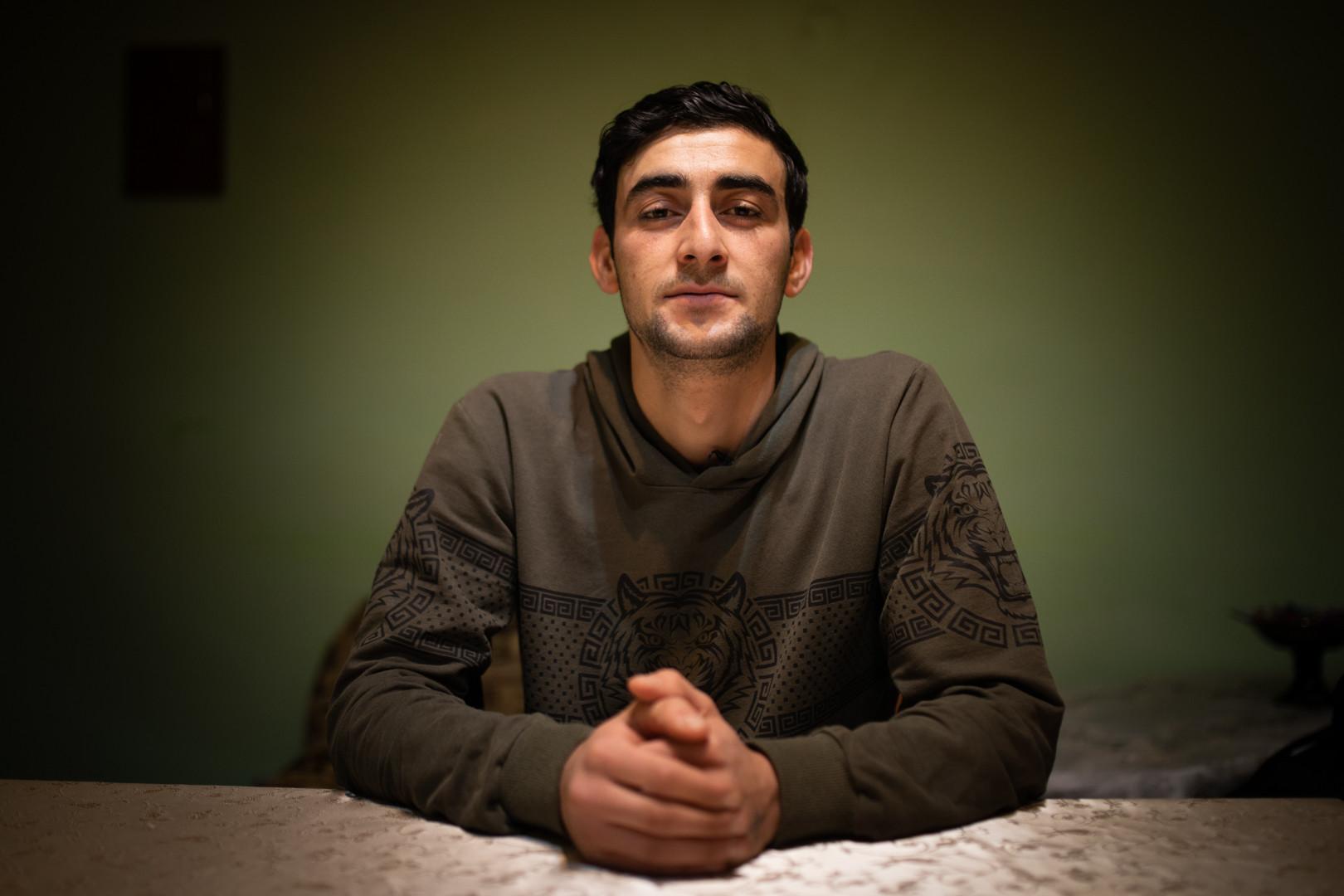
Senior Lieutenant Vrezh Manukyan Laments “Lack of Leadership” During 2020 Artsakh War; Vows to Fight Again
Armenian Army Senior Lieutenant Vrezh Manukyan, who commanded the third Drmbon Airborne Battalion platoon during the 2020 Artsakh war, talked to Hetq about what he experienced on the battlefield.
The battalion took part in military operations in Talish, Mataghis, Martakert, Haterk, Shekher, Hadrut, Shushi.
On November 5, the airborne battalion was tasked with joining defensive battles on the outskirts of Shushi with two platoons. The platoons managed to get out of the blockade on the night of November 8. Fighting in the woods, they retreated, and on November 9, at 04:00 in the morning, they reached Stepanakert. During the war, Manukyan's platoon had one victim and two wounded.
When did you arrive in Shushi on November 5? Where were you stationed? What was your combat mission?
On the afternoon of November 5, around five o'clock, we arrived and took up positions at the intersection of the road leading to Karin Tak-Shushi, on Yeghevni hill near the electricity network. We had to guard the right side of the road and adjacent areas with our special purpose battalion.
Was there any coordination between you and these other Armenian units?
There was no contact at all between us. In any operation, be it training or combat, communication is the most important attribute. I can say that such contact was lacking those days by a degree of 85-90%. There was no leadership. If there is no leadership, it is impossible to solve problems. I was one of the commanders and I had shortcomings. I was 23 years old during the war. The more senior the officers, the larger the mistakes they made, even to the point of running away. There was no one who gave orders, there was no leadership, there was no connection, there was no will. The air defense systems and the electronic warfare jamming systems did not work. The enemy's attacks were successful every time.
From where did the Azerbaijani military fire on your position and with what weapons?
There was fire from all sides: from Karin Tak, from the town of Shushi, from Isa spring, from the Krkzhan vales. The enemy surrounded us on the bight of November 5-6.
They were using everything from firearms to artillery, TOS-1 multiple rocket launchers from Kubatlu, grenade launchers, artillery. I had never seen such intense fire. A minute didn’t pass without an explosion somewhere.
During the 44-day war, the most casualties were in this part of the country. On November 8, 400 people were killed by firearms in this area within 10 minutes.
The road had been closed on both sides since November 6. We found ourselves in a blockade. Our forces could not come to the rescue from the gas station on the Shushi Road. They could not supply food, water or ammunition. Only armored vehicles could come to evacuate the wounded, to bring ammunition. But they were also hit.
On November 7, our tanks were advancing, and our airborne group, along with a special unit, was advancing, taking weapons, food, cigarettes from there. We had nothing. They could not provide any communication link, no water, no food. On the same day, November 7, we retreated again because the enemy was too numerous. We could not sustain the advance.
On the afternoon of November 7, our command had no contact with us. Our relatives thought we were not there either. The intensity of the fire was so great that every ten minutes there were either casualties or wounded. No armored vehicles could approach, only a few Artziv (Eagle) guys from the Khojaly tank brigade came with their brigade commander, taking the wounded and bringing weapons.
On November 8, our airborne battalion’s Chief of Staff, Major Valeri Sargsyan, was killed by a sniper.
Between 12 and 1 o'clock at night, most of the troops had retreated from the Shushi-Karin Tak intersection via the gorge. Only a few remained behind, and they suffered casualties.
We decided to reemerge via the gorge. When we did, we encountered an Azerbaijani 70-man unit. We engaged them and destroyed 90%. We advanced and met more Azerbaijani units. We came under artillery fire. We were able to get out of the blockade and we reached the Krkzhan spring at four in the morning.
I do not consider myself defeated, and my soldiers, who fought from the first to the last day, did not lose either.
There will be another war. My soldiers and I have seen how much blood has been shed on those lands. The graves of our fathers and brothers are there. We will fight yet again.
 Videos
Videos Photos
Photos

Write a comment